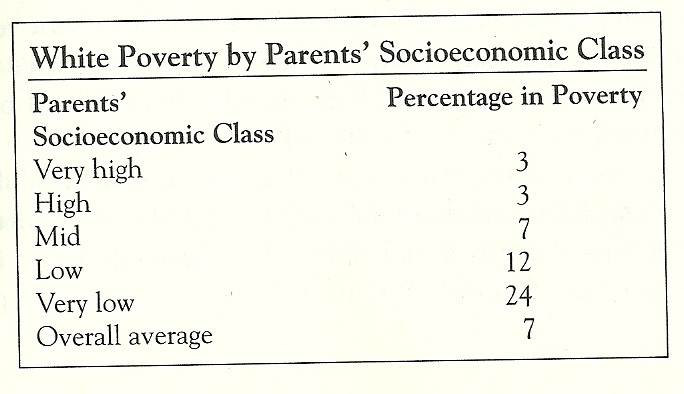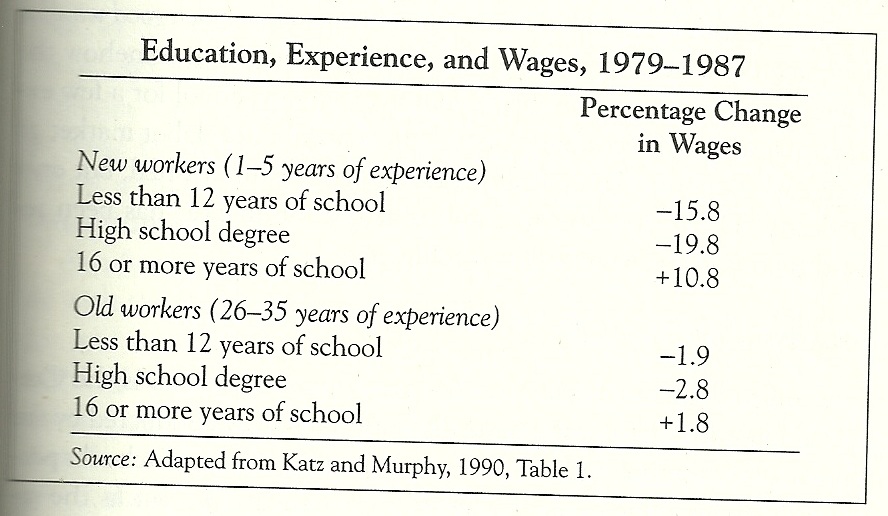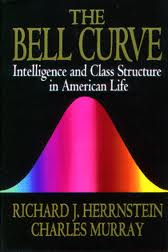
Last week I posted on the impact that socioeconomic status had on childhood poverty. I don’t think anyone was surprised to see that children who come from parents/mothers with a lower standard of living have a greater chance of growing up poor than children whose parents/mother had a higher standard of living:
The data is hard to argue with. The “well off-ness” of the parents seems to have a powerful impact on the chance of poverty of a child.
The book continues this investigation as it relates to education, both high school and college.
First, the authors discuss high school and the rate of drop-outs. That is, what is the probability of a kid finishing high school? And they took a look at this through the lens of the socioeconomic status of the child’s parents. Again, the scale is broken into 5 parts; the median is in the middle and from the center the scale moves on by 1 standard deviation and then another.
When everything else is held constant, the probability of dropping out of school based on the socioeconomic status of the parents looks like this:
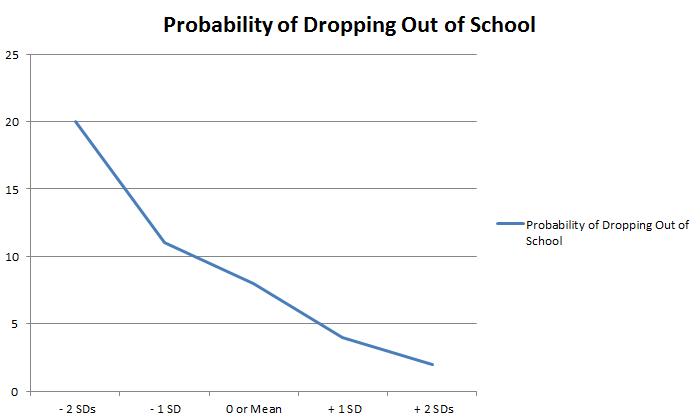 The data is striking. Kids from poorer households dropout of high school a very higher rates than kids from wealthier households. If you look at the extremes, the poorest kids drop out at a rate ~10x as high as the kids from the wealthiest households.
The data is striking. Kids from poorer households dropout of high school a very higher rates than kids from wealthier households. If you look at the extremes, the poorest kids drop out at a rate ~10x as high as the kids from the wealthiest households.
Now take a minute and consider college education and obtaining a 4 year degree. Consider what you might expect the data to show. If the data is consistent with our previous peeks into the impact that SES has on aspects of kids, we might make a pretty good guess.
Here’s the data:
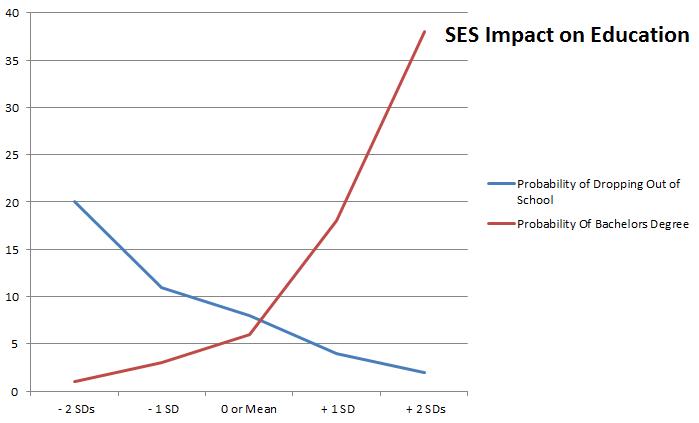
Just as we might expect. The role of the socioeconomic status of the parents is a powerful one for kids who wanna obtain a college degree. Everything else being equal, there is almost no chance that a kid coming from the poorest families will achieve the the thrill of obtaining a diploma while the same kid from our wealthiest families has near a 40% of graduating.
As we close this section I’m struck by two things:
1. Even our richest families are producing college graduates at a less than 40% clip.
2. The wealth of a kids family continues to play a powerful role.







